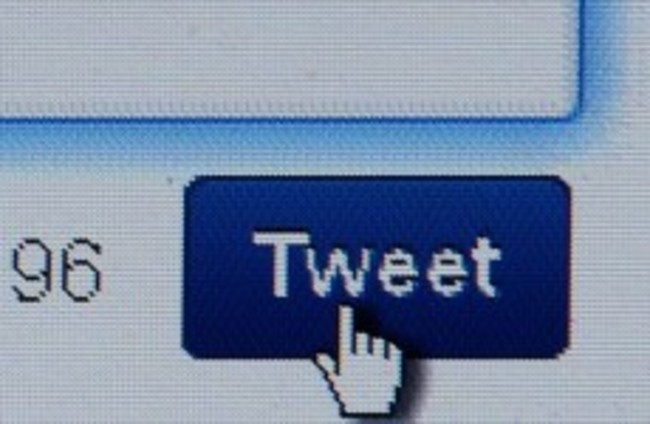ONE TWEET WAS all it took. That one tweet, which I casually posted on Sunday, 16 December 2012, opened up a new side of Twitter that I had never experienced before.
That one tweet ended up getting 43 retweets and what must have been at least 200 responses (and that’s only counting the people who took the trouble to @ me). Having been on the site for about two-and-a-half years, before that day, I had only ever considered it necessary to block one person and had never tweeted anything that was deemed remotely controversial. But when the day was through, I had blocked an additional 88 accounts and appeared to be the talk of an entire community of people.
And it all happened so suddenly during what was a lazy and boring afternoon. At around 5pm, I casually checked my Twitter interactions page and initially, suspected that I had accidentally gone onto to my main timeline, or that there was a problem with the site, as all I could see were the names of countless people I didn’t recognise.
However, it swiftly became clear that these individuals were directly engaging with me, and not in a friendly manner. On the contrary, those aforementioned blocks were carried out for a reason, as most of the tweets were abusive, obnoxious, or insulting – or sometimes all three.
So what was my crime? Was the tweet in question racist? Misogynistic? Homophobic? No, in fact, it was about football. Let me repeat exactly what it was I tweeted that caused such widespread offence:
Also, Dembele not good enough on basis of today’s performance. Never imposes himself on games. Too Jenas-esque. Badly need a new CM. #thfc
Those who follow football might consider it mildly controversial, though hardly unreasonable – I noticed more or less the same point (minus the Jermaine Jenas comparison) being made by an eminent print journalist about a week later. Granted, the player I was referring to, Tottenham’s Mousa Dembele, is highly-rated by many of the sport’s fans and commentators. But the average person will surely forgive me for being taken aback at the level of bile that was directed towards me on a regular basis for a period of about three hours thereafter.
Of all the tweets that came my way, I ended up blocking about 50%. My rule was that any tweet that was in anyway obnoxious got an automatic block. Of the other 50%, some partially agreed with me, and even those who were critical at least voiced their opinion in a relatively polite fashion. Nonetheless, precisely none of the tweets were met with a response — I felt those who were rude didn’t deserve one, while there just wasn’t enough time in my day to reply to the well-meaning reactions.
Yet without launching into a detailed defence of the tweet itself, on reflection, I regret it to an extent. Not because I no longer stand by what I said (I still do), but owing to the fact that the point I was making was far too complex for a medium such as Twitter, in which concision is mandatory. As a result, the majority of those who were unhappy with the remark completely misinterpreted it. I subsequently wrote a blog (which can be found here) that provided a much more detailed and satisfying explanation of the logic behind what is without doubt the most incendiary thing I’ve ever written.
Tottenham Hotspur’s Moussa Dembele, centre, is challenged for the ball by Swansea City’ Dwight Tiendalli, right. (AP Photo/Alastair Grant)
But while the tweet itself may have been somewhat ill-advised, most neutral observers will surely agree that the subsequent reaction was far more troubling. What was most disconcerting was that, while the majority of those who engaged in the vitriol had all the characteristics of the archetypal Twitter troll – ie very few followers, poor spelling and grammar, a seemingly compulsive need to fill their sentences with expletives – a minority were people/accounts who really should know better.
For instance, what appeared to be a high-profile Tottenham blog that had over 5,000 followers retweeted someone who referred to me as a “#Thunderc**t”. With all the talk of online bullying and the general negative publicity that the internet has been receiving of late, it was truly inexcusable for people with a considerable online influence to be acting in such a manner. Fortunately, I have the strength of mind and experience to pay little attention to what strangers say about me. But what if an insecure teenager had been in my position? There is a genuine danger that they could be hurt or even traumatised by the persistent abuse of what essentially constituted a hate mob.
Yet all things considered, having a vast experience of using Twitter, I feel confident in saying it does far less harm than good as an entity, and that to shut it down or unduly censor people on the back of such incidents would be unwise.
Moreover, it’s no coincidence that the majority of those who sent abusive tweets to me were people whose profile pic invariably was of someone wearing a Tottenham jersey, with a Tottenham-related background, or whose tweets almost always seemed to exclusively relate to Tottenham-based matters. Essentially, these individuals were fundamentalists of a footballing variety. Therefore, such unsavoury tribalism and blind loyalty must be ardently discouraged.
And this lifestyle, in which people value allegiance to an institution (in this case Tottenham Hotspur) over common sense and decency, can largely be ascribed to a lack of education. Consequently, to stop such people from wreaking havoc online, it is education rather than censorship that is imperative.
But still, just remember – one tweet is all it can take.
What do you think?












Cracking player. Pacy enough to make it at a higher level and smart enough to develop playing mens football
Brilliant news, two years also is a massive boost to Skip.